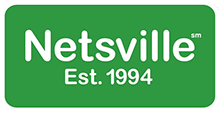Content Marketing is an excellent way to drive traffic to your site and generate leads. Properly written content should coincide with your product and be a promotional piece in itself. Good content will go unnoticed unless you have an effective strategy to promote your content. Check out this piece from Forbes which discusses differentiating your content strategy vs your content marketing.
Content Strategy Vs. Content Marketing: What’s The Difference?
Matt Bowman
Oct 17, 2018, 06:00am
Businesses today need more than a brochure-type website to help them succeed. Great on-site content is important and helps businesses of all sizes. But, it’s not the Field of Dreams.
In addition to having excellent content on your website, it’s also important to have a great content marketing strategy that uses content to help drive a continuous flow of traffic to your site.
Beyond getting people to your homepage, you’ll want a deeper strategy to drive them to specific sections of your site. And, beyond simply generating and distributing content to drive traffic back to your other online properties, you’ll want to regularly analyze results to help you further home your ongoing content strategy.
The combination of a good content strategy and content marketing will work in tandem to help you achieve your goals. So, what’s the difference? Your content marketing efforts will drive targeted traffic to your site and once they arrive, your on-site content strategy will work to convert that traffic into leads, followers and customers.
The Importance Of A Content Strategy
By simply creating content and distributing it, you may miss out on great opportunities. This is akin to throwing things at a wall and hoping they’ll stick. Instead of placing content wherever, craft a strategy that ties in with your branding and goals. These are some reasons why your content needs a clear strategy:
• Content can drive people to other online locations beyond your website, such as social marketing channels to boost your online presence and drive new followers your way.
• Content reactions can be measured to determine the best types of content for your target audience.
• Content can be crafted to take potential customers on a journey through the sales cycle, maximizing the chances they’ll become a customer (and possibly a referring customer, as well as a repeat client).
By strategizing, you can ensure you are not only able to target low-hanging fruit but also take that strategy one step further. Having a clear strategy sets you up for the following:
• Poising yourself as best-in-class for those doing a competitive analysis.
• Selling “fries with that burger” through comprehensive value-added selling.
• Maximizing your marketing reach through social sharing.
• Managing relationships with leads and former customers in order to deepen relationships.
A strategy that looks at what types of content you’ll create, where it will be distributed, which part of your website it will link back to and ways of measuring success can help you continually benefit from content marketing and refine your strategy as you go.
Without a strategy, your content marketing efforts will seem reactive to what your competition is doing instead of creating content or implementing a tactic based on research, analysis and what your audience really wants or needs.
Examples Of Content Marketing
Once you establish your content strategy, you’ll want to define the marketing tactics you’ll be implementing. Here are just a few examples of content marketing:
Blog Posts: Posting informative content on your business’ blog can continually bring in new traffic as well as improve your organic search engine optimization (SEO) results. It also offers a great opportunity to converse with new prospects and past customers. They’re already on your site to read that blog post, so your design could lead them deeper into your sales funnel. Popular posts can boost traffic rates as well as provide great SEO results.
Guest Blog Posts: Crafting informative and engaging posts for authoritative sites related to your niche can help you establish yourself and your brand as an authority while helping you drive new traffic to your own website.
Bylined Articles: Well-written and informative articles establish expertise as well as use a byline to drive traffic to other online content you’ve created. It could naturally lead back to your lead generation tool or sales page.
E-Books: Free e-books with helpful and valuable information can boost opt-in rates for email marketing, which is a great lead generation and customer relationship management tool.
Infographics: Infographics bring great viral potential. Not only can you post them on all your social media properties, but they are often shared by others and will link back to you.
Email Marketing: Email marketing offers a great opportunity to deepen relationships with leads and past customers alike.
Video Marketing: Video marketing is a great way to attract people interested in your product or service by helping them solve problems, positioning your product as a solution.
Tips For Your Overall Content Strategy
Use a diverse content marketing strategy as part of your overall content strategy and split test to continually refine your approach.
Read More at Forbes
Based in Rochester, New York, Netsville is an Internet Property Management company specializing in managing the Digital Marketing, Technical, and Business Solutions for our customers since 1994. For more information, please click here.






